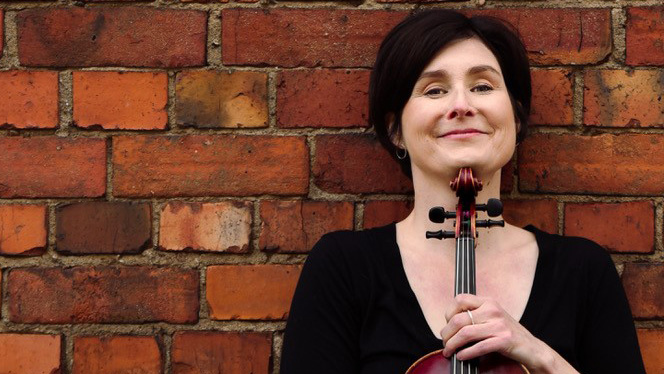Lecturer Yvonne Frye created a project to give a jump-start to small children that are especially motivated in instrument learning
From the leading idea of lecturer in violin pedagogy and violin Teacher Yvonne Frye, the Sibelius Academy launched a pilot project last Autumn to support the musical learning of young and motivated children who are playing an instrument.

With the leading idea of our lecturer in violin pedagogy and violin teacher Yvonne Frye, the Sibelius Academy launched a pilot project to support the musical learning of young and motivated children, beginning to learning to play an instrument.
The project, called “Next Generation – Alku soittoon”, involves instrumental teachers and pupils of three music institutions around the Finnish metropolitan area and Sibelius Academy pedagogy students and teachers. The idea is to find a model to offer the young instrumental pupils a “full dose” of inspirational tuition at the very start of their musical journey.
The project wants to foster young children, who are at the beginning of their musical hobby but already show special motivation and inspiration, by offering them an extra amount of lessons and group tuition with the guidance of not only teachers at their own music institution but also by the teachers and pedagogy students at the Sibelius Academy. The children involved in the project get individual tuition significantly more than they usually would, topped with group lessons and a weekend camp with the other participants.
The Sibelius Academy plays a central role: in addition to their lessons at their own institutes, the children step once a week into the inspirational environment of the academy with lots of great musicians as role models. This can have a very nurturing impact on a child.
“Some children are very interested and motivated to learn to play an instrument. That we are able with this project to give them the time to do what they are inspired to do is wonderful. Within the structure of a music institute, there is often just not enough time resources for those children.”
Especially the early years of learning an instrument are crucial. That is the time where all the musical and technical fundaments of playing an instrument are being laid and where the spark and enthusiasm needs a nurturing environment.
“With this project we offer them inspirational space and time for musical growth according to their individual development pace. We do this we lots of care: the project is built on a safe and trusting environment and we take constant care of psychological needs of the children. To evaluate the pilot projects professionally, we have involved researchers.”
“We have a responsibility to educate skillful pedagogues”
One of the tasks of the Sibelius Academy is to educate skillful pedagogues. Frye states that if the Sibelius Academy or any other music university wants to have good applicants, it needs skillful teachers at music institutes, specially when working with beginners.
“We need to invest in the future into a profound and holistic pedagogical education. In that way we invest in the future of the Sibelius Academy.”
Sibelius Academy´s violin, cello and flute pedagogy students are a crucial part of the pilot project; they are co-teaching the small children together with their own pedagogy teachers and the childrens’ teachers from their own music institutions. Frye says that this is a good way for the students to see various ways of teaching.
“It becomes like a big toolbox of different approaches for them, and I think that’s very enriching. Furthermore, if the first teaching experience for an aspiring teacher is with a child who’s especially motivated, it is a smooth start for a young teacher, who is not yet so experienced.”
The pedagogy students have support not only from their own pedagogy teachers but from the other teachers as well – the project offers a pedagogical community with lots of peer learning for all members involved.
“We have the opportunity to reflect on teaching and learning all together, and that’s how we all benefit.”
The Next Generation project relies not only on the network of teachers but also on the involvement and commitment of the children’s parents. When we are talking about children under the age of 10 their participation in the project requires logistical help from the families and also help in practicing at home. The parents are also present in the lessons.
“There is a lot to gain for the families: they are happy that the child gets a lot of teaching under professional guidance. Still, we have to take care that the children are not overwhelmed: we as professional pedagogues have to adjust the lessons according to the child’s capacity the best we can. We are in regular contact with the parents to hear their views on the child´s development.”
The future plans for the Next Generation project is that it could be formed to a model that can be used in music institutions all over Finland – and eventually, maybe also abroad.
“I vision that in five years the music institute systems would have enough resources and space for especially motivated and interested children.”
For Frye herself, the project so far has offered opportunities to communicate with her colleagues and the Sibelius Academy pedagogue students on a deeper pedagogical level.
“Exchanging ideas and learning from each other is very inspiring. There are so many different approaches to learning an instrument. I think a driving force for skillful teachers is, that they maintain the passion for learning themselves with an open mind towards the various ways of teaching and learning in a rapidly changing society. This frame of mind I try to encourage in my students at the Sibelius Academy and this project is a great driver for this.”